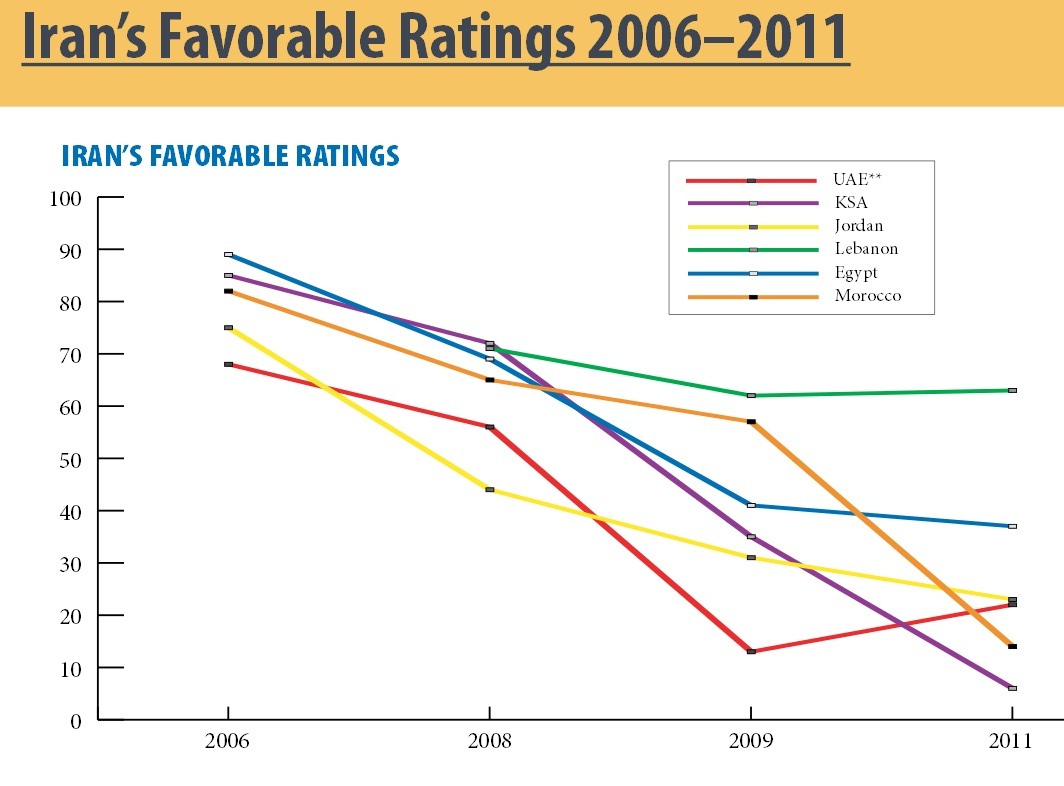Iran is now viewed unfavorably in 14 out of 20 Arab and Muslim countries, according to a new poll by Zogby Research Services. The survey results show a growing antipathy towards Tehran. Majorities in all but four countries agree that Iran is contributing to sectarian division in the Arab world. Only majorities in Iraq, Lebanon, Libya and Yemen think “Iran is working to promote peace and stability in the region.”
Zogby Research Services asked participants if they identified with the Green Movement demonstrators or Iran’s government after the 2009 presidential election. Majorities in all countries except Algeria, Iraq, Lebanon, Libya and Yemen identified with the Green Movement.
Tehran’s unfavorable ratings “appear to be driven by its policies in Iraq, Syria, the Arab Gulf region, in general, and by its nuclear program,” according to the report.
In 2006, Zogby Research Services surveyed opinion on Iran’s nuclear intentions. Majorities in Egypt, Jordan, Kuwait, Morocco, Pakistan, Saudi Arabia and the United Arab Emirates thought Iran’s program was for peaceful purposes.
But public opinion has flipped. Majorities in those same countries now say Iran intends to build a nuclear weapon. Majorities in 14 countries support economic sanctions against the Islamic Republic. But no majority in any surveyed country supports a military strike on Iran’s program. The following are excerpts from the survey report, with a link to the full text at the end.



